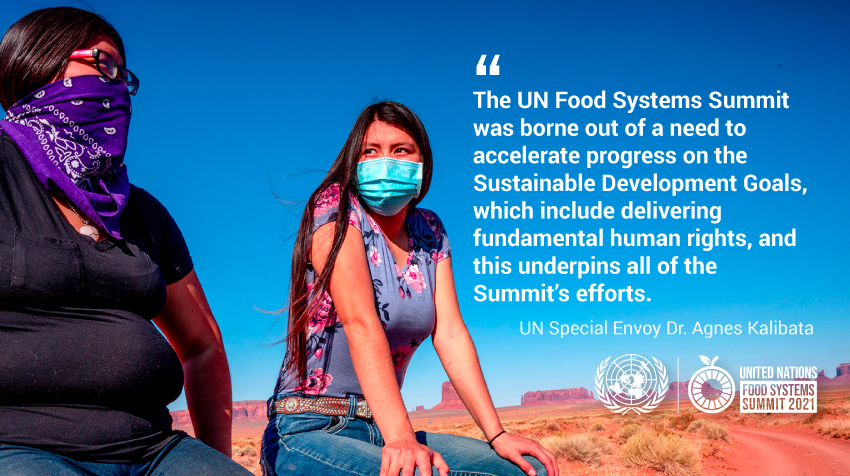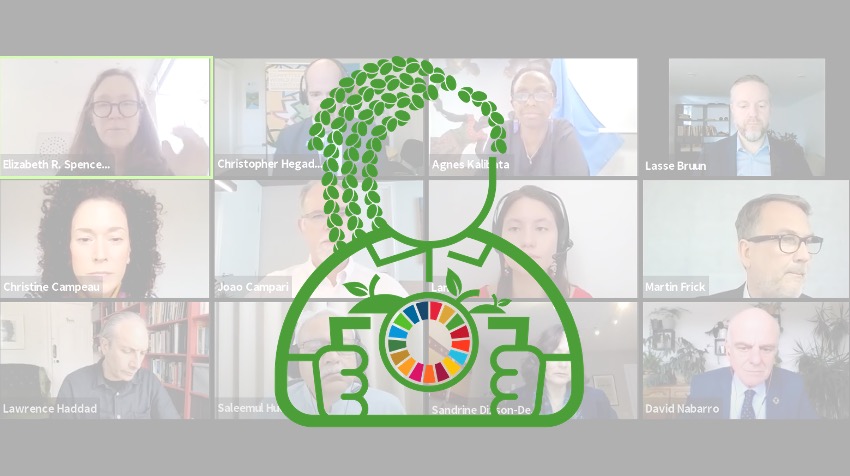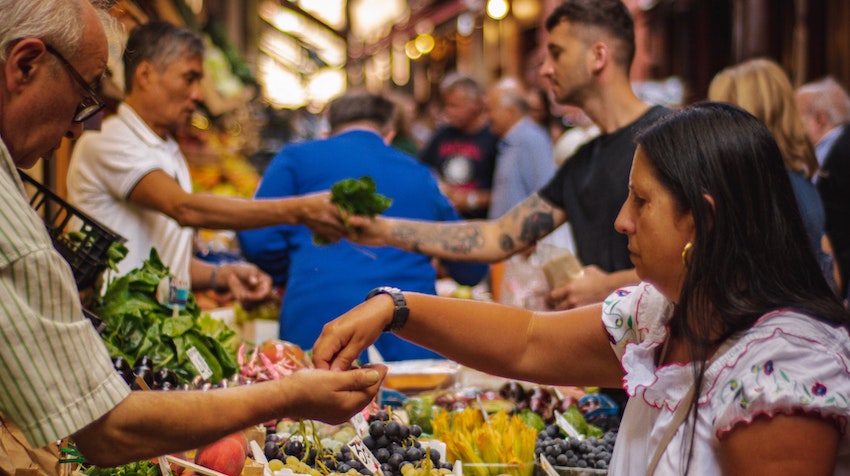Action Tracks
The Summit’s Action Tracks offer stakeholders from a wide range of backgrounds a space to share and learn, with a view to fostering new actions and partnerships and amplifying existing initiatives. The Action Tracks are aligned with the Summit’s five objectives. Importantly, the Action Tracks are not separate, nor do they sit in siloes. Each Action Track is designed to address possible trade-offs with other tracks, and to identify solutions that can deliver wide-reaching benefits.
The Action Tracks will draw on the expertise of actors from across the world’s food systems. Together, they will explore how key cross-cutting levers of change such as human rights, finance, innovation, and the empowerment of women and young people can be mobilized to meet the Summit’s objectives.
New Action Areas!
Over 2000 ideas were received by the Action Tracks and have now been consolidated into 15 Action Areas. Review and give your feedback here.
Action Track 1
Ensure access to safe and nutritious food for all
Action Track 1 will work to end hunger and all forms of malnutrition and reduce the incidence of non-communicable disease, enabling all people to be nourished and healthy. This goal requires that all people at all times have access to sufficient quantities of affordable and safe food products. Achieving the goal means increasing the availability of nutritious food, making food more affordable and reducing inequities in access to food.
Updates
10 May 2021: Synthesis Report: Game-Changing and Systemic Solutions - Wave 2
4 May 2021: Public Forum 3 - Watch
1 April 2021: Synthesis Report: Game-Changing and Systemic Solutions - Wave 1
25 February 2021: Public Forum 2 - Report | Watch
30 November 2020: Discussion Starter Paper
Action Track 2
Shift to sustainable consumption patterns
Action Track 2 will work to build consumer demand for sustainably produced food, strengthen local value chains, improve nutrition, and promote the reuse and recycling of food resources, especially among the most vulnerable. This Action Track recognizes that we need to eliminate wasteful patterns of food consumption; it also recognizes that we need to facilitate a transition in diets towards more nutritious foods that require fewer resources to produce and transport.
Updates
21 May 2021: Synthesis Report: Game-Changing and Systemic Solutions - Wave 2
20 April 2021: Public Forum 3 - Watch
1 April 2021: Synthesis Report: Game-Changing and Systemic Solutions - Wave 1
3 February 2021: Public Forum 2 - Report | Watch
3 December 2020: Discussion Starter Paper
Action Track 3
Boost nature-positive production
Action Track 3 will work to optimize environmental resource use in food production, processing and distribution, thereby reducing biodiversity loss, pollution, water use, soil degradation and greenhouse gas emissions. In its pursuit of this goal, the Action Track will aim to deepen understanding of the constraints and opportunities facing smallholder farmers and small-scale enterprises along the food value chain. It will also strive to support food system governance that realigns incentives to reduce food losses and other negative environmental impacts.
Updates
20 May 2021: Synthesis Report: Game-Changing and Systemic Solutions - Wave 2
27 April 2021: Public Forum 3 - Watch
1 April 2021: Synthesis Report: Game-Changing and Systemic Solutions - Wave 1
26 February 2021: Public Forum 2 - Watch
10 December 2020: Discussion Starter Paper
10 December 2020: Public Forum 1 - Watch
Action Track 4
Advance equitable livelihoods
Action Track 4 will work to contribute to the elimination of poverty by promoting full and productive employment and decent work for all actors along the food value chain, reducing risks for the world’s poorest, enabling entrepreneurship and addressing the inequitable access to resources and distribution of value. Action Track 4 will improve resilience through social protection and seek to ensure that food systems “leave no one behind.”
Updates
19 May 2021: Synthesis Report: Game-Changing and Systemic Solutions - Wave 2
26 April 2021: Public Forum 3 - Watch
1 April 2021: Synthesis Report: Game-Changing and Systemic Solutions - Wave 1
1 February 2021: Public Forum 2 - Watch
1 December 2020: Discussion Starter Paper
1 December 2020: Public Forum 1 - Watch
Action Track 5
Build resilience to vulnerabilities, shocks and stress
Action Track 5 will work to ensure the continued functionality of sustainable food systems in areas that are prone to conflict or natural disasters. The Action Track will also promote global action to protect food supplies from the impacts of pandemics. The ambition behind Action Track 5 is to ensure that all people within a food system are empowered to prepare for, withstand, and recover from instability. Action Track 5 also aims to help people everywhere participate in food systems that, despite shocks and stressors, deliver food security, nutrition and equitable livelihoods for all.
Updates:
20 May 2021: Synthesis Report: Game-Changing and Systemic Solutions - Wave 2
6 May 2021: Public Forum 3 - Watch
1 April 2021: Synthesis Report: Game-Changing and Systemic Solutions - Wave 1
4 February 2021: Public Forum 2 - Watch
2 December 2020: Discussion Starter Paper
4 December 2020: Public Forum 1 - Watch
Latest news

The UN Food Systems Summit was borne out of a need to accelerate progress on the Sustainable Development Goals, which include delivering fundamental human rights, and this underpins all of the Summit’s efforts. Even before the pandemic, the world was not on track to achieve all of our goals for people, planet, and prosperity. Too often food systems have been a part of the problem, when they can – and must – be a large part of the solution.

This live online forum saw representatives from the Action Tracks and Summit Dialogues share progress, ideas to date and next steps. The discussion provided an opportunity to touch on emerging recommendations and ideas of building coalitions, identify gaps, and other areas of concern. Watch the Forum >>

